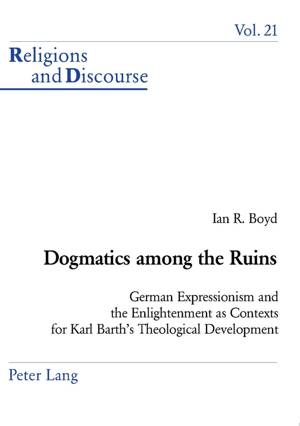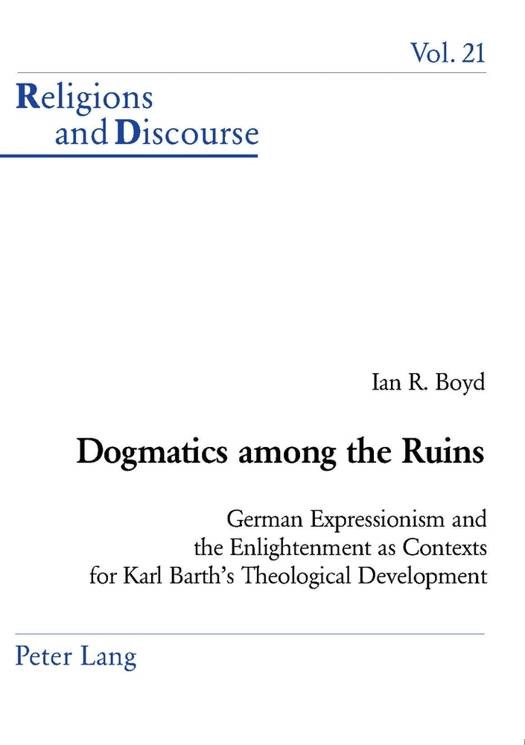
- Afhalen na 1 uur in een winkel met voorraad
- Gratis thuislevering in België vanaf € 30
- Ruim aanbod met 7 miljoen producten
- Afhalen na 1 uur in een winkel met voorraad
- Gratis thuislevering in België vanaf € 30
- Ruim aanbod met 7 miljoen producten
Zoeken
Dogmatics among the Ruins
German Expressionism and the Enlightenment as Contexts for Karl Barth's Theological Development
Ian Boyd
€ 102,45
+ 204 punten
Omschrijving
In the second decade of the twentieth century the cultural life of Germany was transformed by the emergence of Expressionism, a series of vigorous, youthful artistic movements which were to exert a lasting influence on modern culture. In the same decade a young Swiss pastor called Karl Barth began a theological revolution, laying the foundations for probably the most influential body of Christian theology in the modern age. Some relationship between these two revolutions has long been assumed by scholars; yet it has never been examined in detail. The first part of this study addresses this omission, offering the most detailed analysis to date of the important relationship between Barth and Expressionism. The second part of the book takes a broader look at both Barth's theology and Expressionist culture, considering the relevance of the Enlightenment as a context for both. The key to this is a detailed discussion of Barth's own analysis of the Enlightenment in his neglected book Protestant Theology in the Nineteenth Century. Barth's view is also compared with Alasdair MacIntyre's treatment of the Enlightenment in After Virtue. The examination of these two contexts, German Expressionism and the Enlightenment, yields valuable insights into Barth's entire theological project.
Specificaties
Betrokkenen
- Auteur(s):
- Uitgeverij:
Inhoud
- Aantal bladzijden:
- 354
- Taal:
- Engels
- Reeks:
- Reeksnummer:
- nr. 21
Eigenschappen
- Productcode (EAN):
- 9783039101474
- Verschijningsdatum:
- 26/04/2004
- Uitvoering:
- Paperback
- Formaat:
- Trade paperback (VS)
- Afmetingen:
- 152 mm x 229 mm
- Gewicht:
- 471 g

Alleen bij Standaard Boekhandel
+ 204 punten op je klantenkaart van Standaard Boekhandel
Beoordelingen
We publiceren alleen reviews die voldoen aan de voorwaarden voor reviews. Bekijk onze voorwaarden voor reviews.











